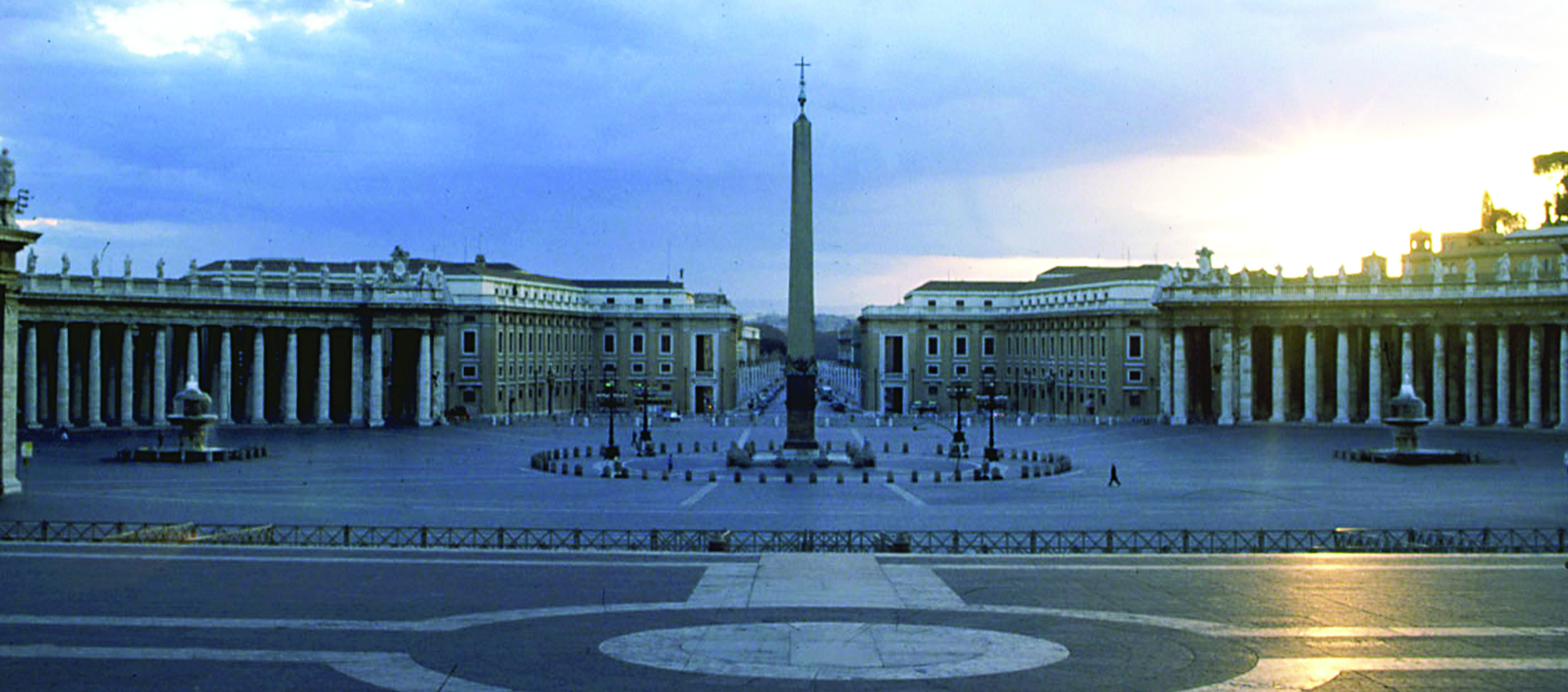Latin poetry of the 20th century, “shot through with quiet reverence”
By John Byron Kuhner
 One of the most common misconceptions people have about the Latin language is that it “stopped” at some point, many centuries ago. Actually, people have never stopped reading, speaking, and writing Latin. In fact, the Latin we have from the ancient world – say St. Augustine and everything before him – represents less than one tenth of one percent of the total written material in Latin.
One of the most common misconceptions people have about the Latin language is that it “stopped” at some point, many centuries ago. Actually, people have never stopped reading, speaking, and writing Latin. In fact, the Latin we have from the ancient world – say St. Augustine and everything before him – represents less than one tenth of one percent of the total written material in Latin.
The Latin book I’ve been returning to most recently is by Iosephus (or Giuseppe) del Ton (1900-1997), a Croatian-Italian who headed the Vatican Latin Office in the 1970s. Del Ton was the epitome of a Vatican don — learned, devout, thoughtful, his writings are shot through with quiet reverence for the splendor and majesty of the Christian life, with all its glorious history, and its transcendence of history.
Del Ton’s magnum opus is his Vaticana Levia, a collection of Latin poems published in 1968, but never translated into English. The title contains a pun: the primary meaning is probably “Light Poems from the Vatican,” or “Vatican Trifles,” but levia can mean not only “light” but “smooth,” implying elegance: “the Vatican Elegancies.” It’s just more proof of the general truth that you really can’t translate poetry: there are always implications you can’t quite pin down.
More than anything else, these poems offer us a unique perspective on living day in, day out beside the tomb of St. Peter. Del Ton treats of the daily variations and textures of life in the Vatican penumbra: crowds in St. Peter’s Square, children throwing snowballs in the colonnade during a rare Roman snowstorm, seeing the lights on at night in the Pope’s apartment (Pastor excubias nocte nigrante gerit, “the Shepherd keeps his watch in the darkness of the night”).
Living in a place is not the same as visiting it. Del Ton could do things most tourists never can — he writes, for instance, about using the Codex Vaticanus — the world’s most important (and possibly oldest) Bible, in the Vatican Library — as his own personal study Bible. He also sees St. Peter’s in all its vicissitudes — crowded at Christmas and Easter, totally empty at off-hours and off-seasons. I think of Del Ton as he writes in Divina Silentia, standing, solitary, in St. Peter’s, amazed at being alone in that vast, godly space:
Arcanis mihi sunt gravida ista silentia rebus:
Nil sane his potius musica ferre potest.
Omnia cum tacuere, animus tum percipit alta;
Hic sisto, ut capiam mystica verba Dei.
The silences are heavy with hidden meanings;
Music itself could not say so much as this.
When all things grow silent, the soul perceives the sublime:
I stand here, to receive the mystical words of God.
Everything Del Ton writes about is still part of Vatican life: the Porta Santa, the Swiss Guards, the Sistine Chapel, the Vatican Library. The Catholic Church, at its heart, is an island of stability in a changing world; our ideal for life comes from the life and teachings of Christ, almost two thousand years ago. Latin is itself a symbol of that: we venerate and pass on an inheritance coming from the time of Christ himself. The 1960s Latin of Del Ton is much like the Latin poetry written at the time of St. Peter. Del Ton, in one of his best poems, uses the Vatican obelisk as a symbol of it all. The obelisk, standing in the Circus of Nero where St. Peter was likely martyred, is often called “the silent witness”: it saw that martyrdom which was the seed for all the life that has gathered around it since. Del Ton writes in the voice of the obelisk itself:
Me fuga saeclorum lambit velocibus alis;
Prae me regnorum creba ruina iacet.
Eventa, aeva, tribus praeterlabuntur ut amnis;
Terrigenum varias testor in urbe vices.
Intactus, firmus caelum peto, tempora vinco;
Iure ego, sancta fides, imago dicor tua.
The swift wings of centuries but brush against my sides:
Whole kingdoms lie ruined before me.
Events, epochs, peoples, pass by like a river:
To mortals’ vicissitudes here I am a witness.
Unscathed, unbent, I seek heaven, I rise above time,
I am well called your Image, O Holy Faith.






Facebook Comments